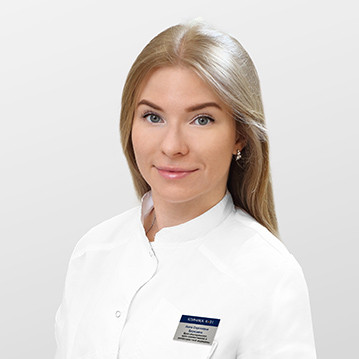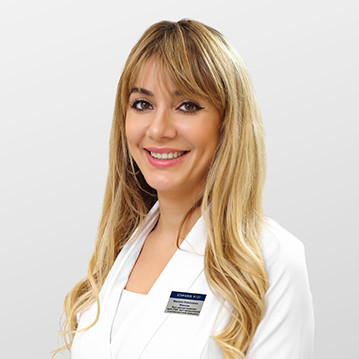Test for predisposition to hereditary diseases
Genetic testing for predisposition to developing cancer: breast cancer, cervical cancer, prostate cancer, stomach cancer, lymphoma
Test for intolerance to lactose, drugs and other substances
Genetic testing for predisposition to certain diseases: diabetes, obesity, pancreatitis
Determination of diseases and pathologies in a child
DNA parentage test to confirm paternity or relationship
All people are unique in their set of genes - there are no universal schemes and approaches to the concept of active longevity. It is these differences that help the preventive medicine doctor build an individual plan for long-term work with the patient.
Knowing the individual risks and “protective mechanisms” of the human body, it is possible to develop the most personalized and an effective plan for monitoring possible violations and correcting existing ones.
Genetic tests can provide your healthcare provider with health recommendations. Blood tests can determine whether you have a genetic predisposition to diseases such as cancer or diabetes. Also, based on the test result, you can see allergies and individual intolerances.
A genetic blood test can help with family planning. They can provide information about the presence of genetic mutations that can be passed on to the child and cause various hereditary diseases. This can help you make informed decisions about having children and take steps to prevent or reduce your risk of illness.
Genetic tests can make a difference to a company doing research. They allow for a more accurate study of genetic markers. This method creates innovative medicines or technologies that will help treat people more effectively.
Genetics analysis allows us to obtain a clinical picture and information about the health and condition of your body. They provide an opportunity to make more informed decisions, change your lifestyle, and develop your life habits. Knowing your risks of developing hereditary diseases, you can take a more responsible approach to pregnancy planning.
Make a healthy nutrition plan
Develop a regimen of effective physical activity
Create an examination plan taking into account personal risks
Create a plan to prevent chronic diseases
Choose the right strategy for correcting identified deviations in the status of vitamins, microelements and other nutrients
Decide on skin, hair and nail care products
Take into account individual characteristics when selecting cosmetology services
Get an interpretation of more than 300 health indicators, including the risks of 100 common genetic diseases, find out the carrier status of more than 150 hereditary diseases
It is important to emphasize that the genetic test is taken once in a lifetime and the data obtained does not change over time.
When choosing a genetic test, it is important to consider its purpose - there are medical studies aimed at diagnosing genetic diseases, as well as relevant when planning pregnancy - this is done by a medical geneticist.
A preventive therapy doctor works with nutrigenetic panels, which answer questions about the metabolism of vitamins, microelements and other nutrients.
Our doctors

This award is given to clinics with the highest ratings according to user ratings, a large number of requests from this site, and in the absence of critical violations.

This award is given to clinics with the highest ratings according to user ratings. It means that the place is known, loved, and definitely worth visiting.

The ProDoctors portal collected 500 thousand reviews, compiled a rating of doctors based on them and awarded the best. We are proud that our doctors are among those awarded.
Make an appointment at a convenient time on the nearest date
Price
About the Center for Preventive and Anti-Aging Medicine K+31 Petrovskie Vorota




Answers to popular questions
How is a genetic test given?
The material for the study is the epithelium of the inner surface of the cheek (buccal epithelium) - the biomaterial sampling procedure is absolutely painless and takes no more than 5 minutes.
For 1 hour before the examination, do not eat, drink liquids, brush your teeth, rinse your mouth and smoke.
What conclusion will I get from the results of the study?
For all patients, the laboratory issues a conclusion on the results obtained in the form of a booklet, in which the laboratory doctor describes the features of your body.
Such a conclusion is usually voluminous and difficult to interpret on your own. Therefore, after receiving the results, it is important to discuss them with your preventive medicine doctor in order to develop a useful, clear and structured lifestyle plan.

























In 2003, the efforts of doctors from all over the world managed to 100% decipher the human genetic code.
Today, medical genetics can diagnose diseases associated with gene disorders, help during pregnancy planning and predict possible genetic “breakdowns” in children, knowing the genetics of parents, calculate the risks of developing chronic diseases.
Of particular interest to doctors of preventive medicine is Nutrigenomics - these are the genetic features of metabolic processes in the body, knowing which, the doctor can draw up a personalized nutrition plan and exercise regimen, identify predispositions to impaired absorption of vitamins and microelements, calculate the risks of chronic diseases and develop preventive measures.